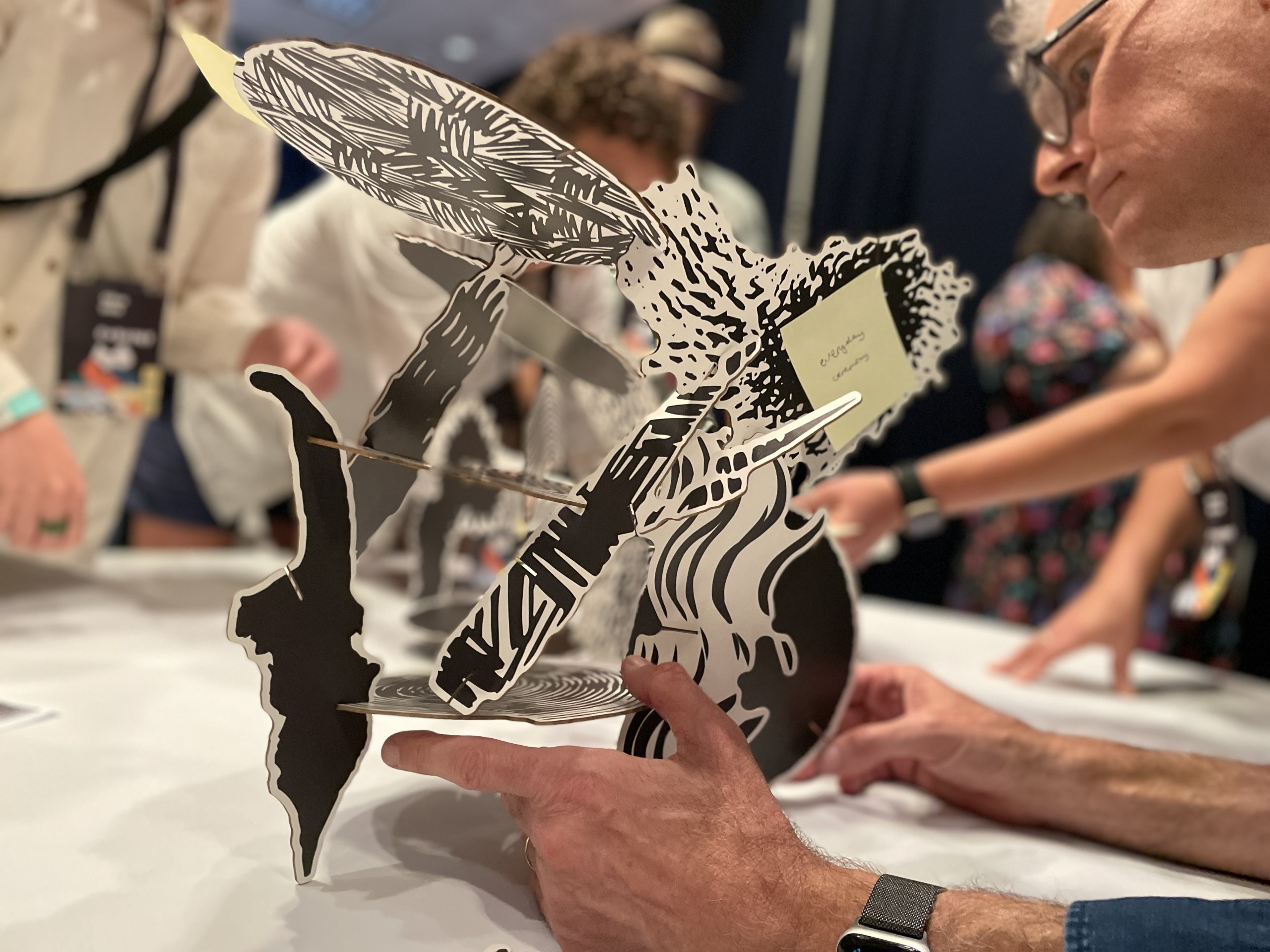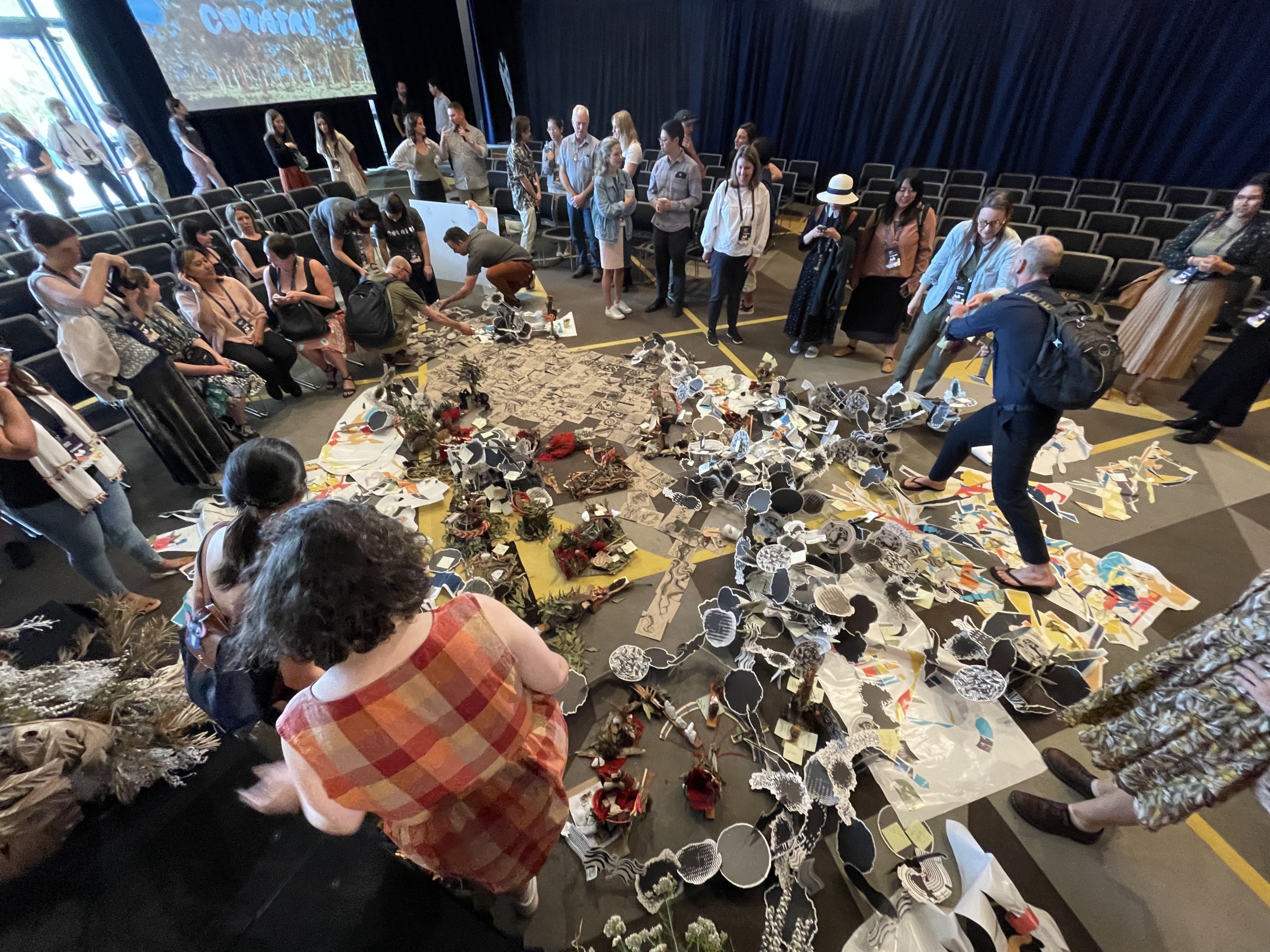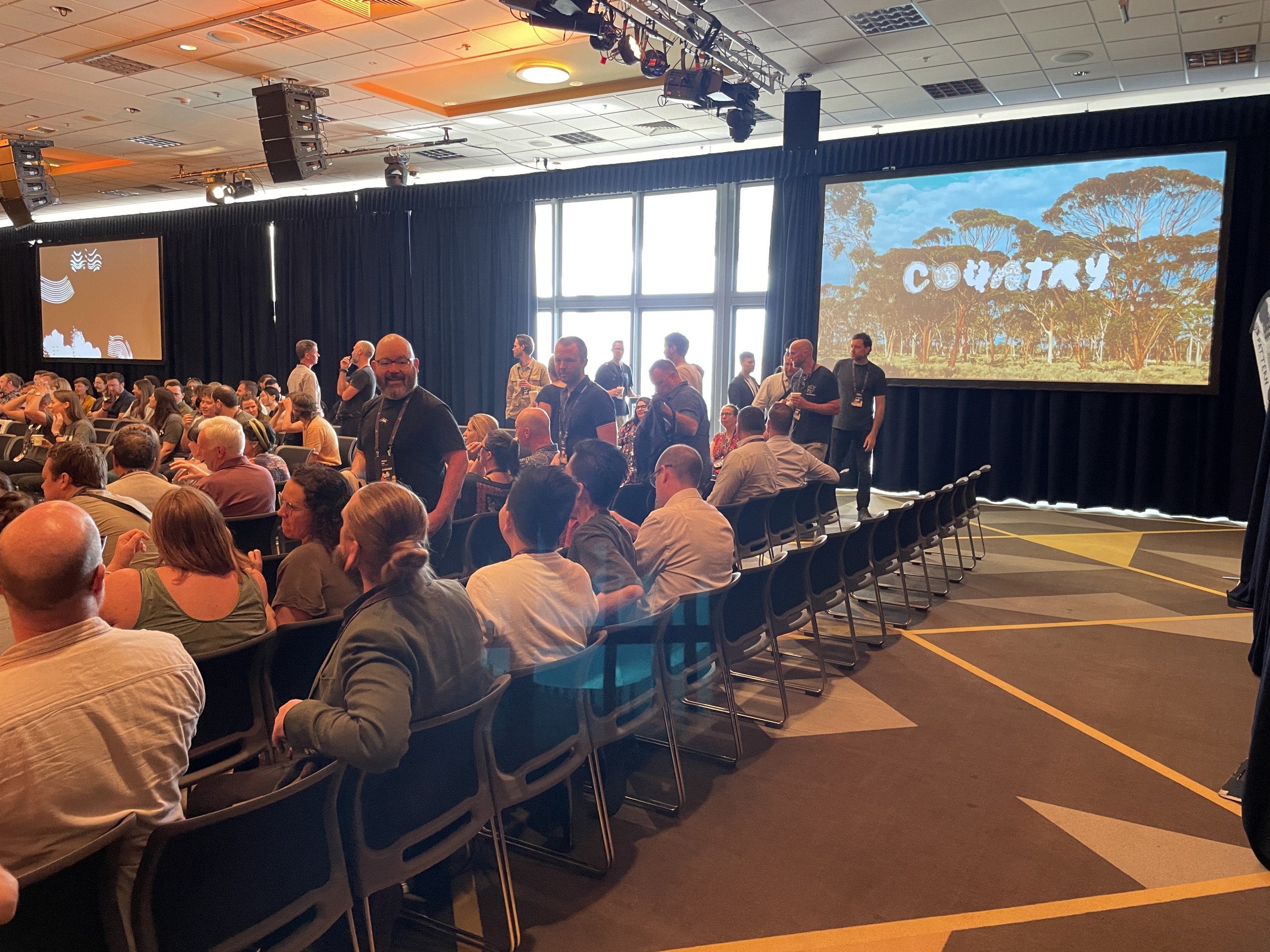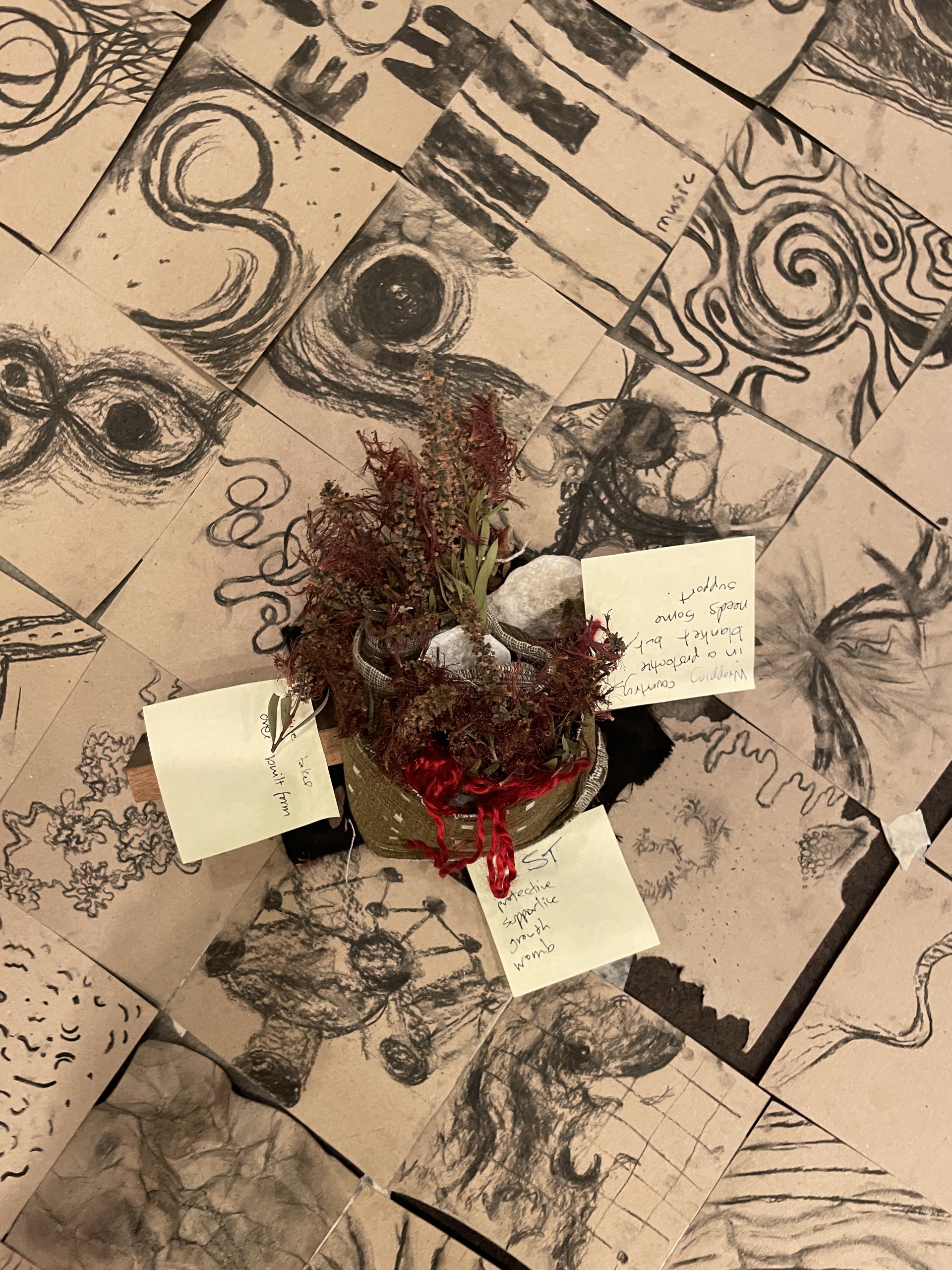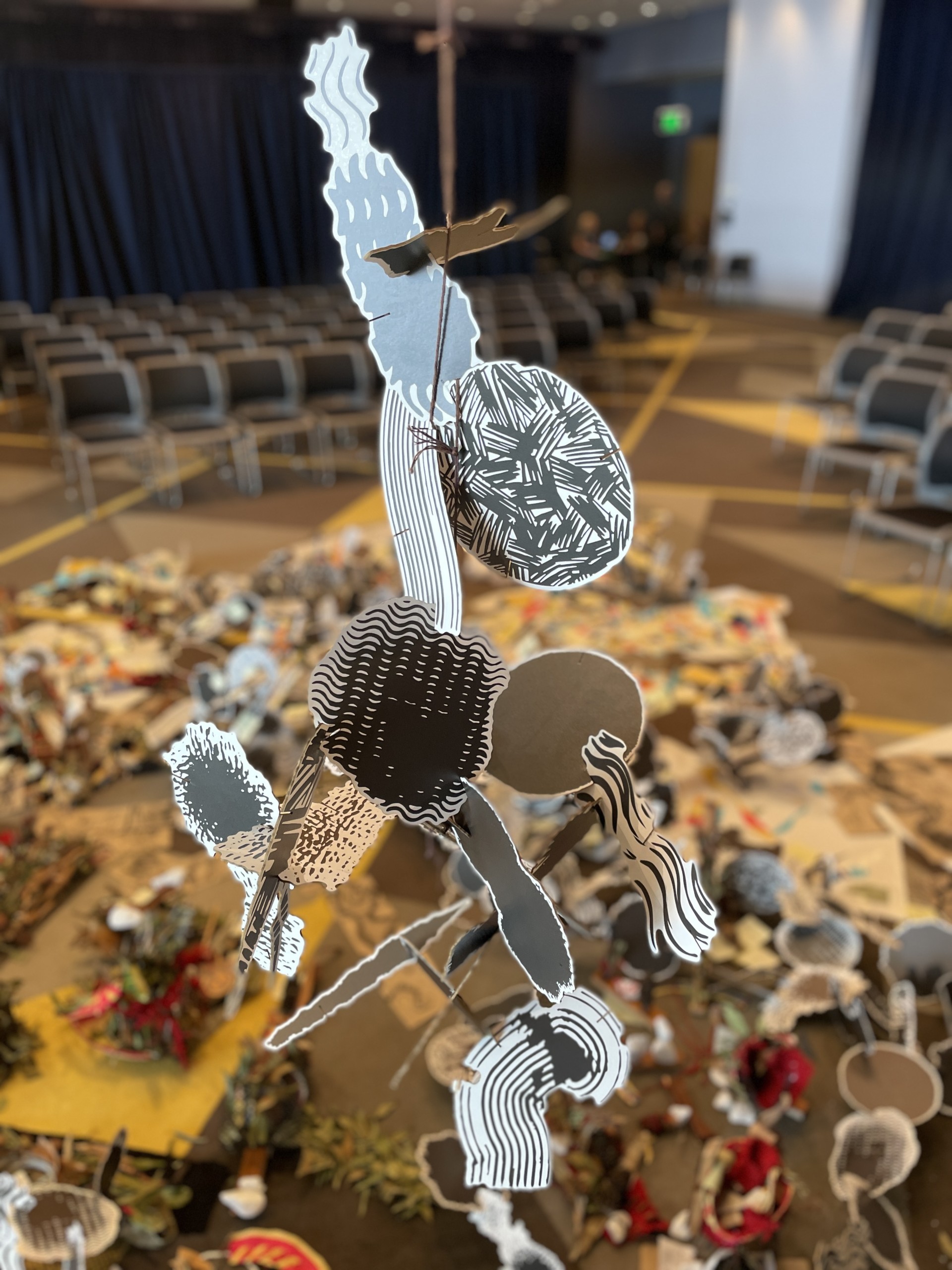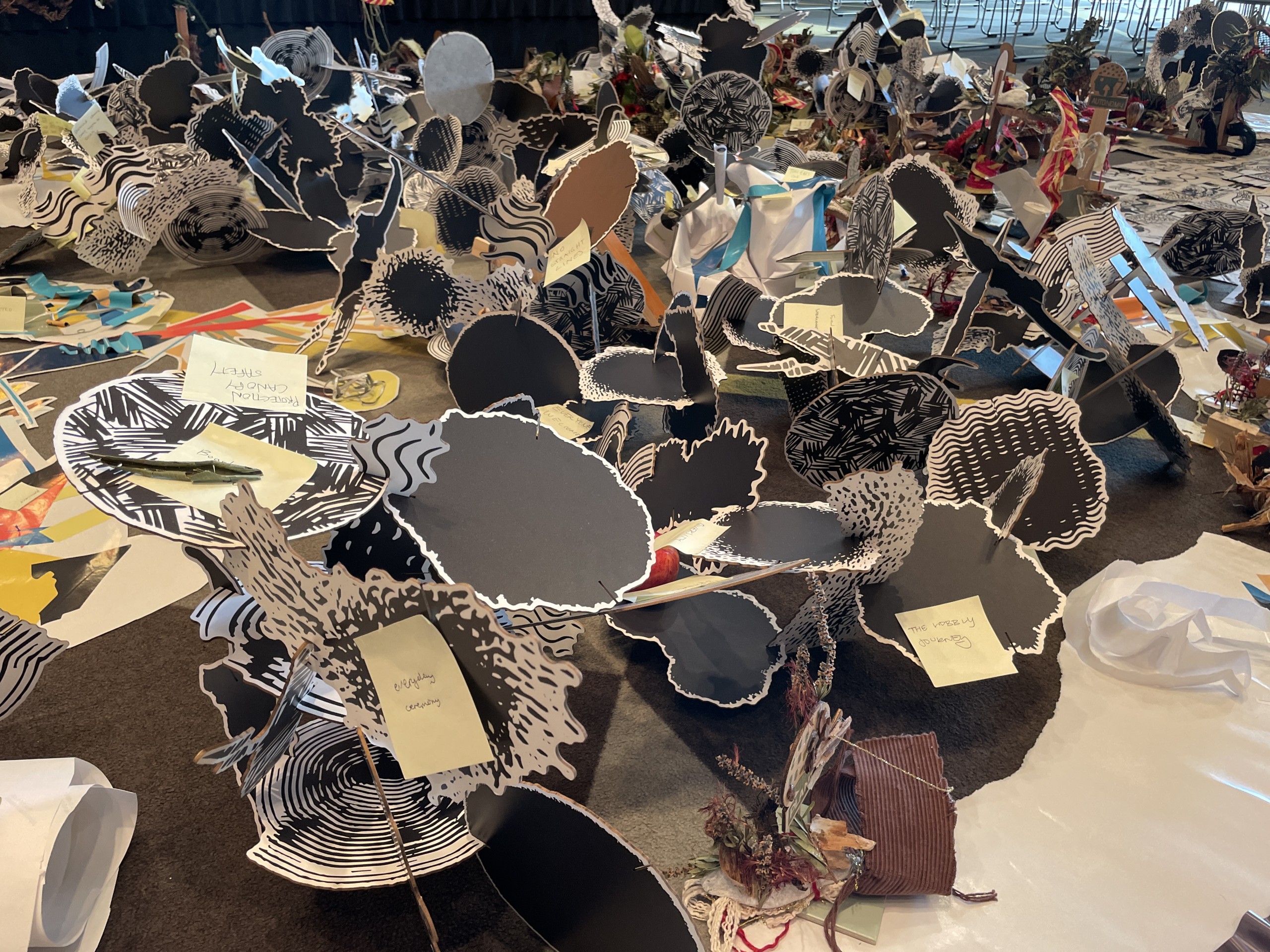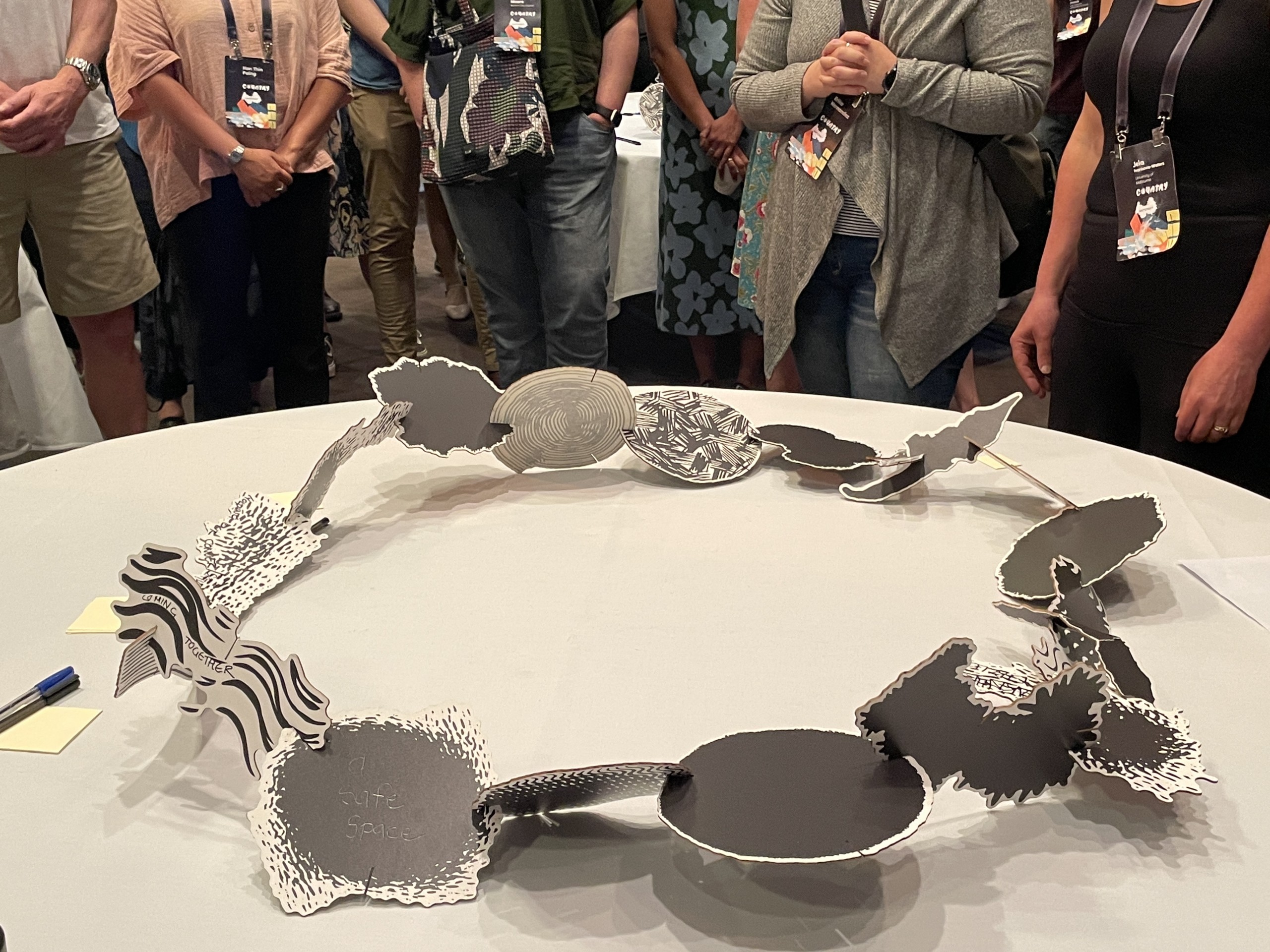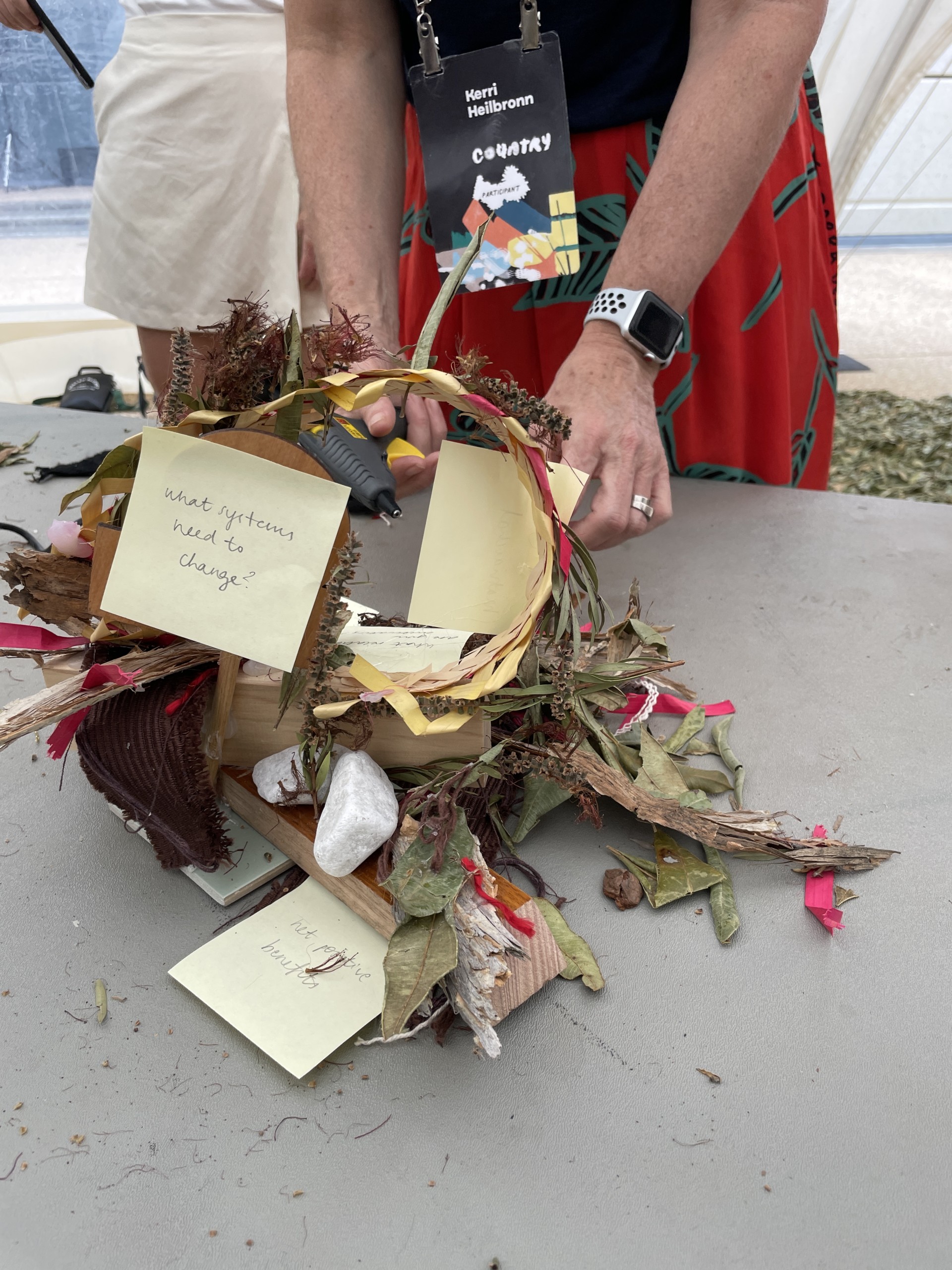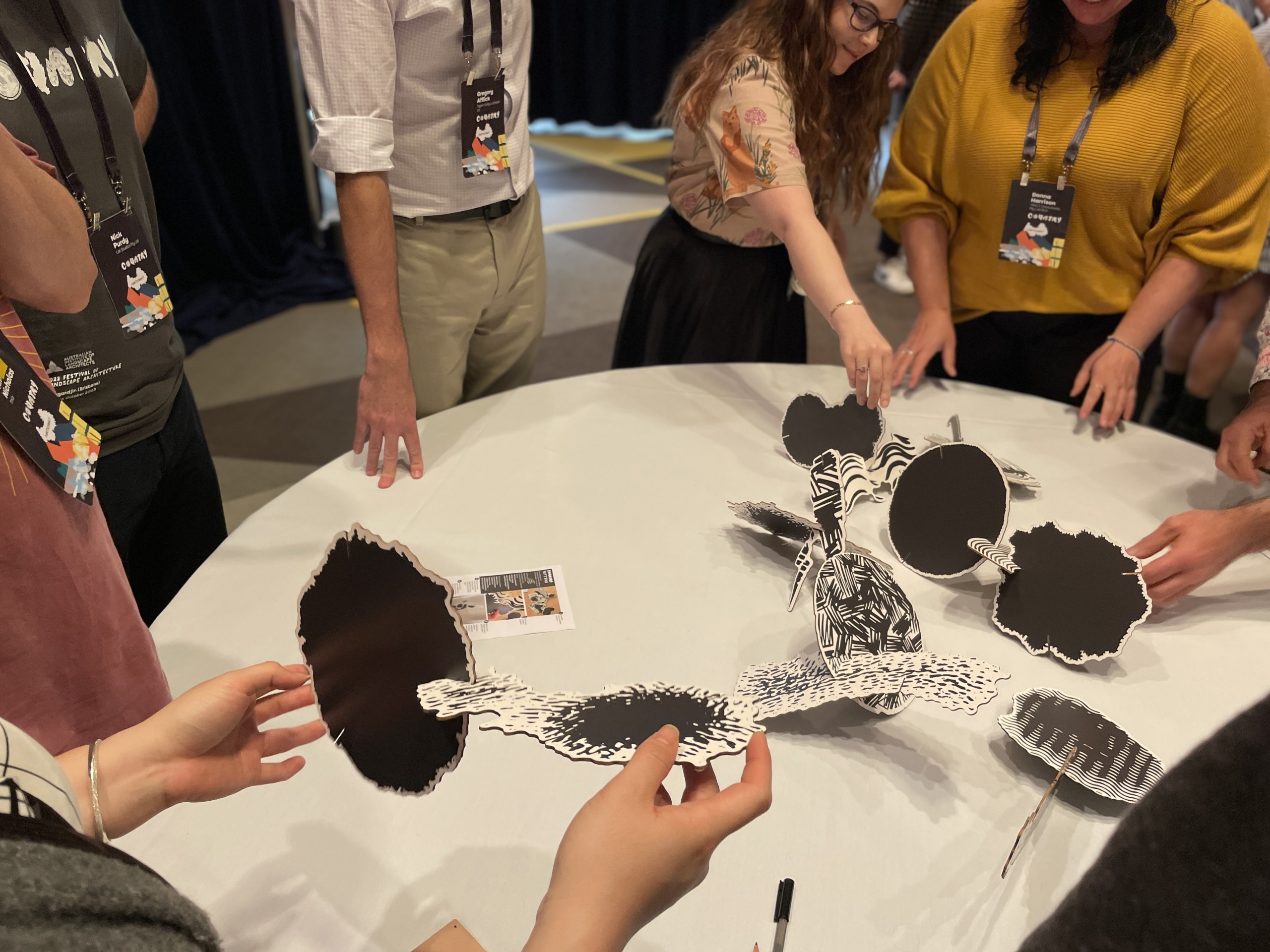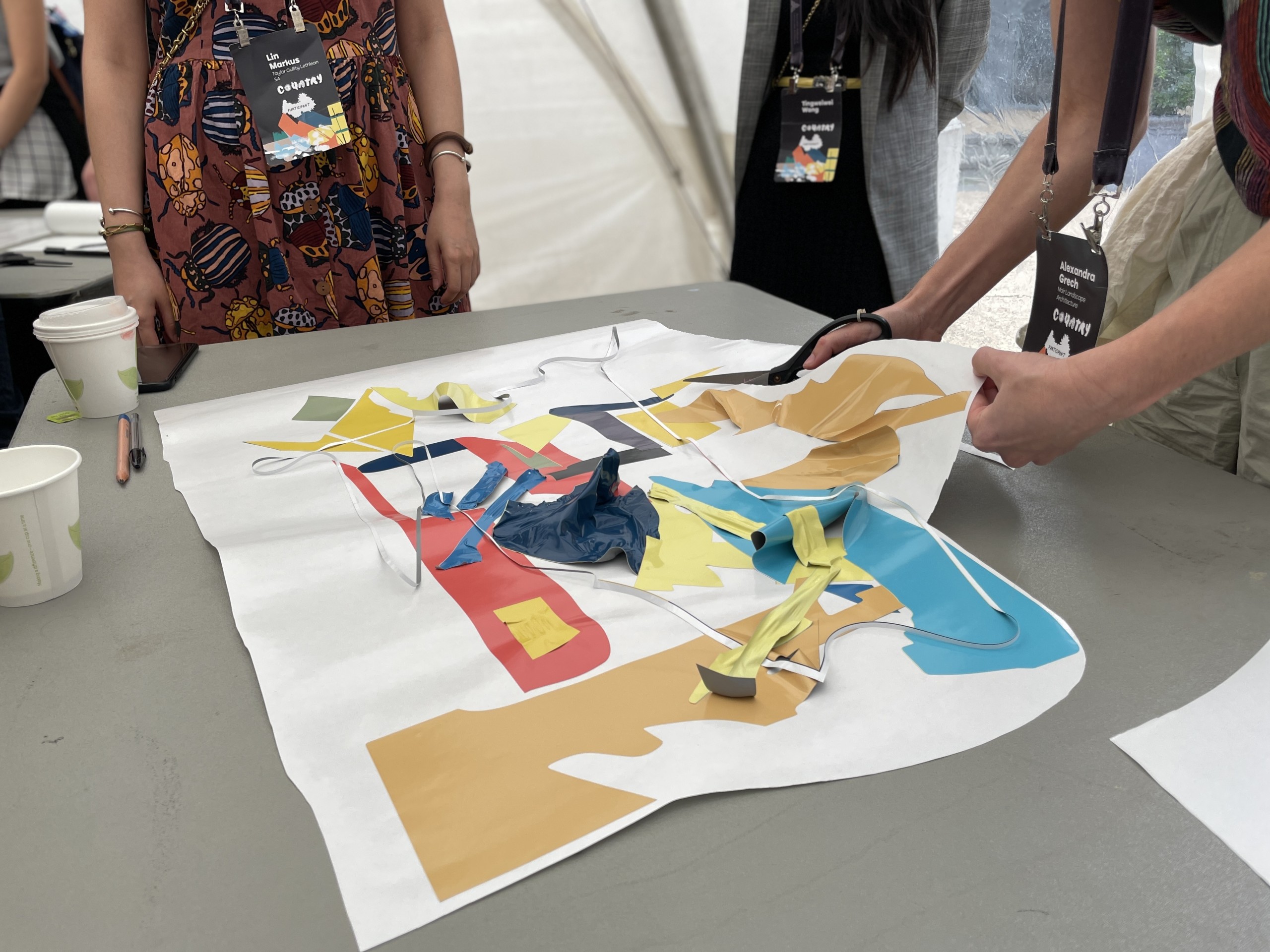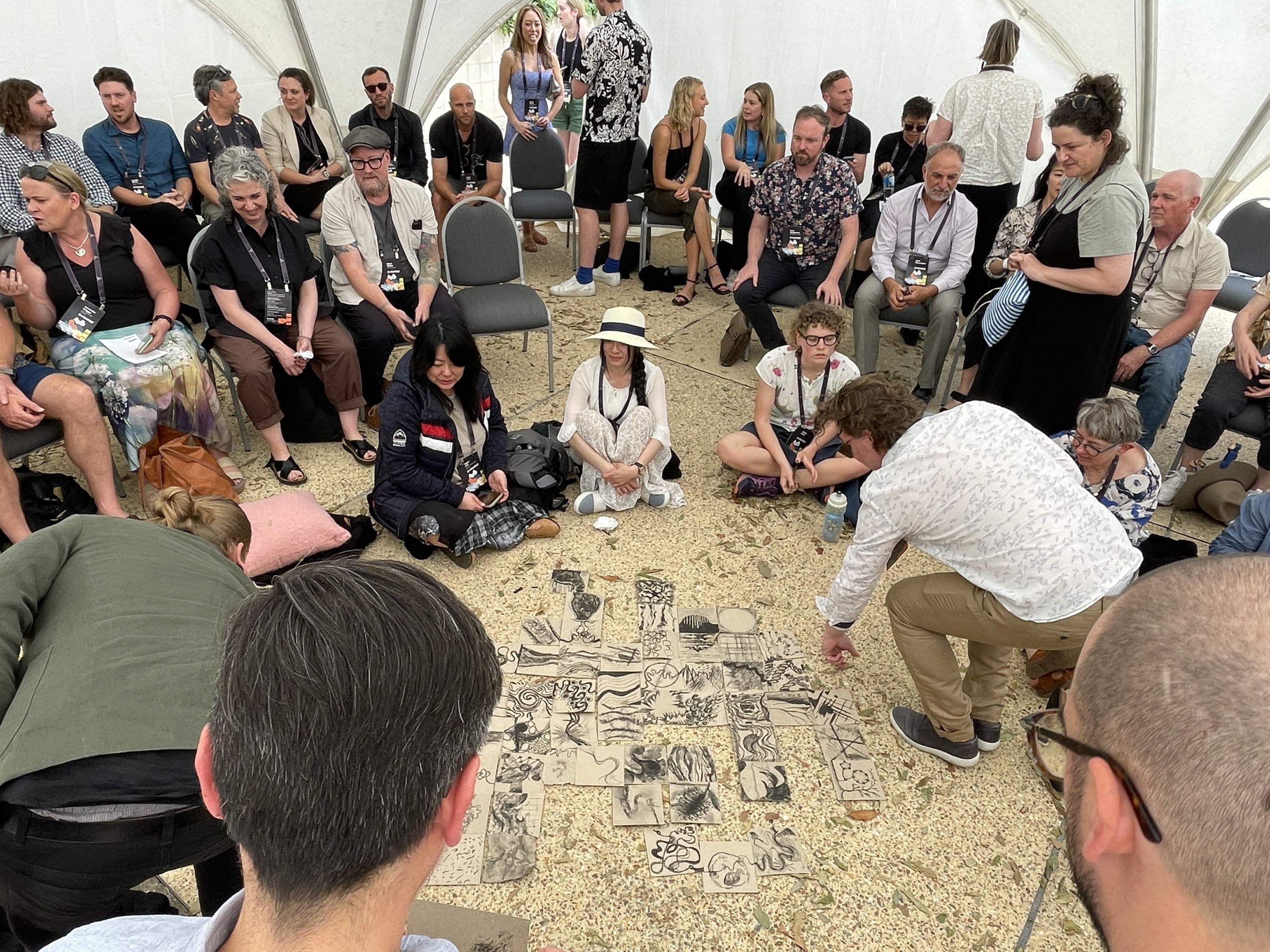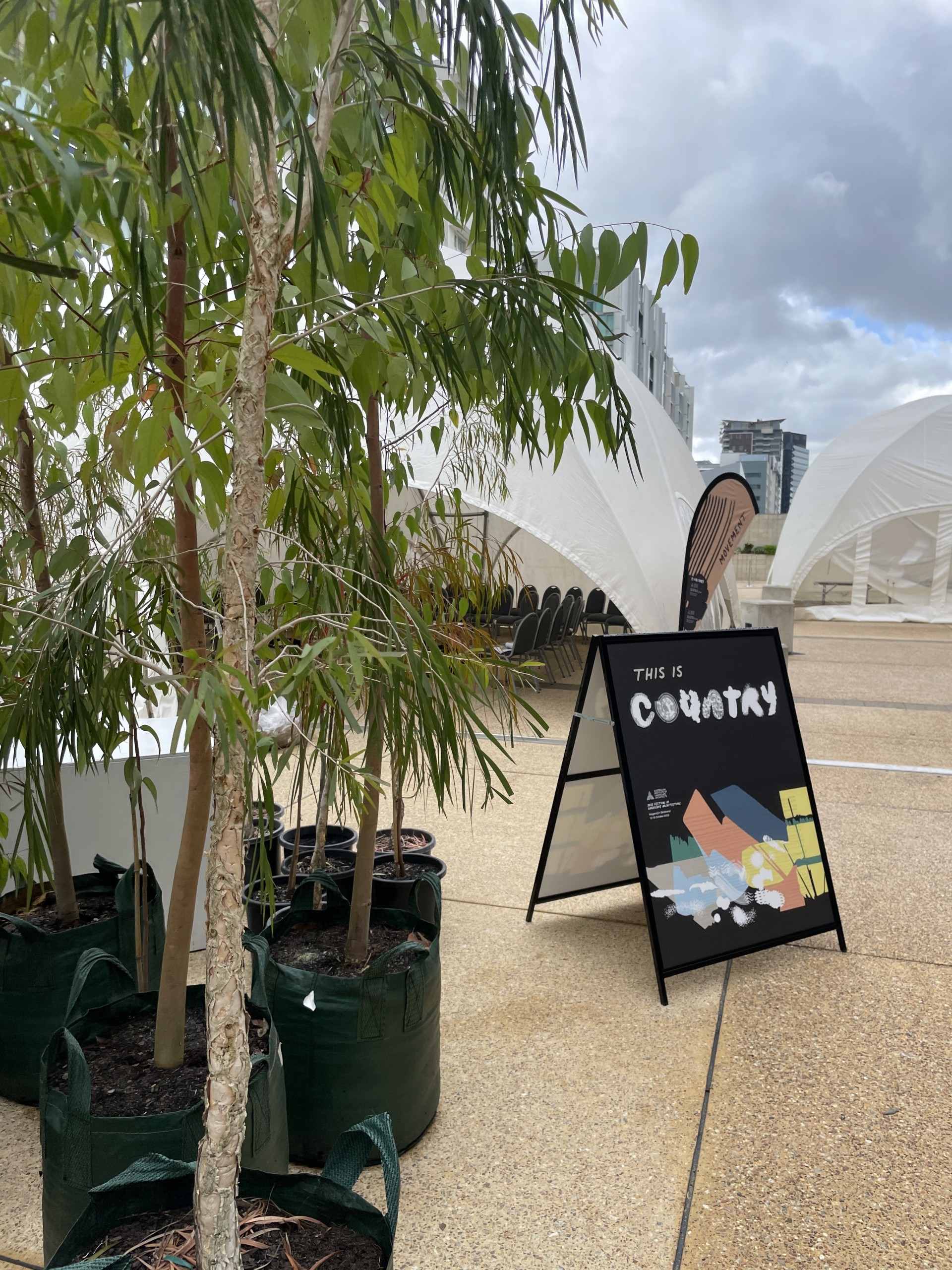Identity, experience design, collaborative curation and facilitation of Country Festival 2022
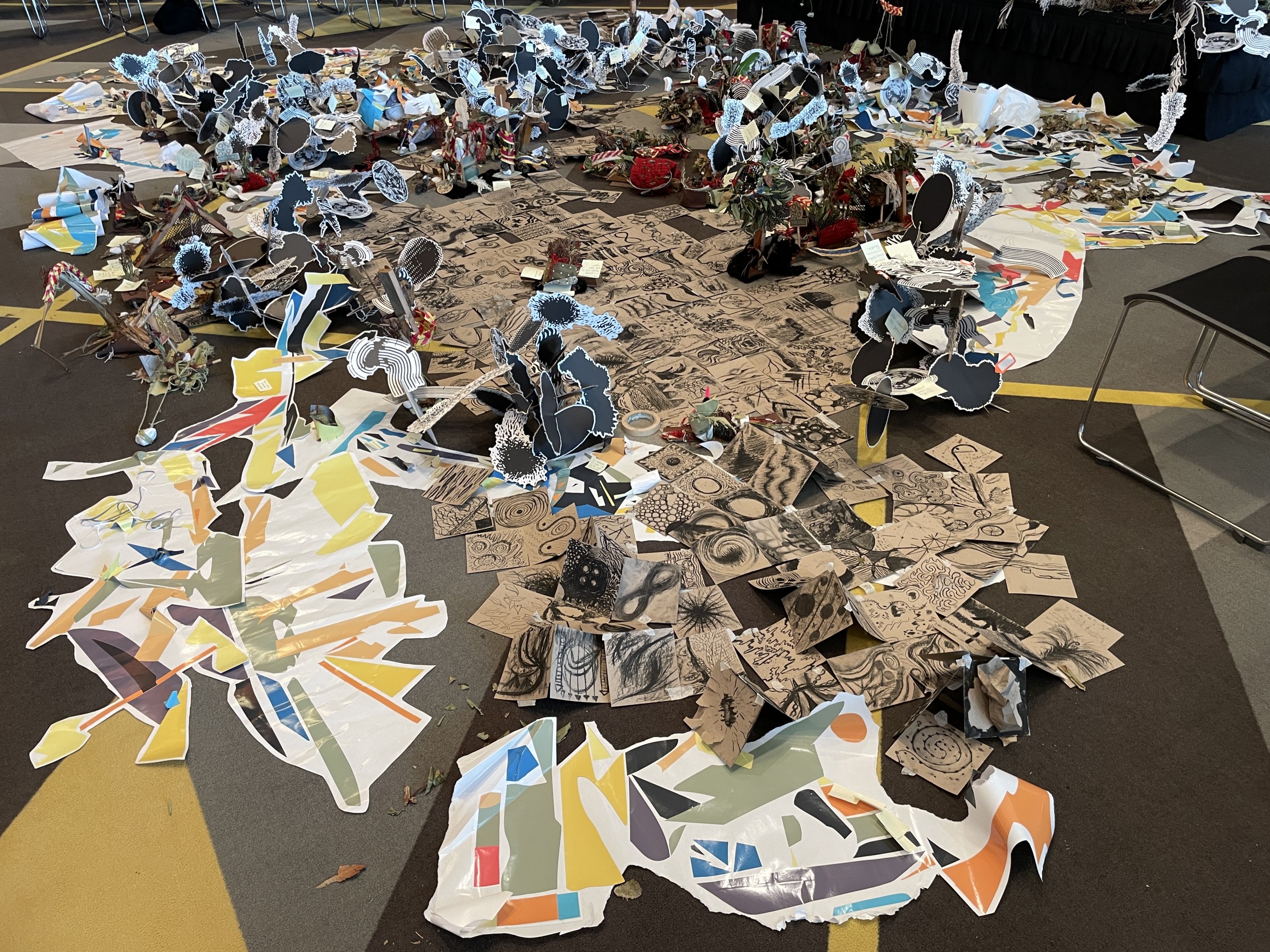
Amazing gathering thank you. Feeling winds of change all around!
Background
The AILA 2022 Festival of Landscape Architecture: COUNTRY took place between the 14th and 16th of October in Magandjin (Brisbane). The Festival was curated by Blaklash Creative, LatStudios and Claudia Taborda as Creative Directors. Relative Creative designed the visual identity and soundscape (soundscape design in collaboration with Koombumerri man, Lann Levinge). To see our post about this important initial visual communication work pop over to Embedding deep meanings of Country into the identity of an Australian Landscape Architecture Festival.
Tristan took this visual communication into integrating it with collaborative curation and creative direction support, designing breakout session experiences, facilitating a number of conversations and key moments of the Festival. Tristan opened the event with a provocation, and closed the event with summaries and calls for action.
Opportunity for Futures
Country brought together Elders, Traditional Custodians and First Nations designers, artists and practitioners, representative of the diversity of Country across Australia, and the varied philosophical approaches to understanding, being with and caring for Country to lead the experiences and discussions across the Festival. Country highlighted the criticality for all involved in shaping urban environments to join with First Nations people to gain a deeper understanding of Country as we prepare our cities for the complex challenges of climate change.
Much of Landscape Architecture, as with all forms of western design, is a profession and discipline in Australia, rooted in global dominant design models, that supports Eurocentrism and keeps colonising geographies and minds alive. Be this spatial, ecological, pedagogical, managerial, methodological, aesthetic, epistemological and ontological configurations. The opportunity for futures is for participants to have a space to listen, and then discuss, what needs to be unlearned in order to learn?
From our perspective, unlearning cartesian rationalism encapsulates a lot. In this, perhaps something in unlearning ‘the gaze’ at people and lifeworlds and their respective places, which speaks to an Anglo-Australian psyche that came with the boats of ‘fearing the bush’. Perhaps unlearning how one conceives their spatial orientation / wayfaring of a place that undermines mnemonic memory-in-place.
This provides an opportunity to learn plural worldviews, learn autonomy in systems, learn different conceptions of configuring borders, learn relational methodologies, spatialities and ecologies. Where to do this unlearning? In universities (can they accommodate such unlearning and learning? Some radically new approach to pedagogy? In ‘professional’ settings (can business models accommodate such radicality)?
Our Approach
The creative directorate set the stage by asking participants interested in registering for the event to give over to deep Listening, with respect, and reciprocity in that listening by engaging in dialogue during breakout sessions, with a responsibility of presence and participation. We created an experience that invoked these sentiments.
We opened with a provocation that we are all gathered here to get to the heart of the way landscape architecture designs a being-in-the-world, a being in-a-place, that is designed by humans yes, but they’re not the only active lifeworlds actively designing. That when we constrict designing to only being human-centred, we know a lot about how to design our world, and very little about what the world that we create, destroys. That we are here (day 1, morning of the festival, 400 people gathered in a curated room at Brisbane Convention Centre) to understand that when humans are not-centred, we might see how Country designs back on ‘us’ in not yet understood ways. In this listening, over the next couple days, we will hear sophisticated and dynamic, systemic and relational thinking, futures thinking. We will hear that we are facing modern problems for which there are no modern solutions. That we are designing no universal direction, as that would be the same trap as all of Western modernity, but rather, that when designing with Country, Country is plural, with solutions based-in-place…
That we are engaging in this knowledge at a moment in history in which our disciplines of design, built environments, landscape architecture are totally in flux. We have already embraced over the past few decades that design can no longer only be what it was in 20th century, about convivial images, objects and spaces in a utopian, comfortable climate. That we’ve been part of a transition to seeing design became about experience-spaces in a changing climate. In 2022 in the midst of a revolution in design, learning, experimenting and putting in practice design being deeply systemic, in our particular context here today, about Designing with Country – systemic-places, inescapably embroiled a Climate Crisis.
Breakout Experiences
The breakout sessions were designed to facilitate a means for participants to use making as a metaphor for the crafting of knowledge. Participants were asked to consider: When you listen, read, write and speak together via tactile making (colours, textures, patterns and movements), reflect on the conversations you’ve heard in the main room, make and discuss, what is cherished? what is being destroyed? How is the conversation signalling change? What is at the boundaries of your made place? What is in the intelligence of the relations between the parts of your form?
In the colour experience, participants crafted coloured sticker sheets into forms. In the they crafted clickable cardboard forms into larger patterns. In the movement experience they made marks on cardboard squares with willow charcoal, and in the texture experience they assembled forms with natural and repurposed objects.
